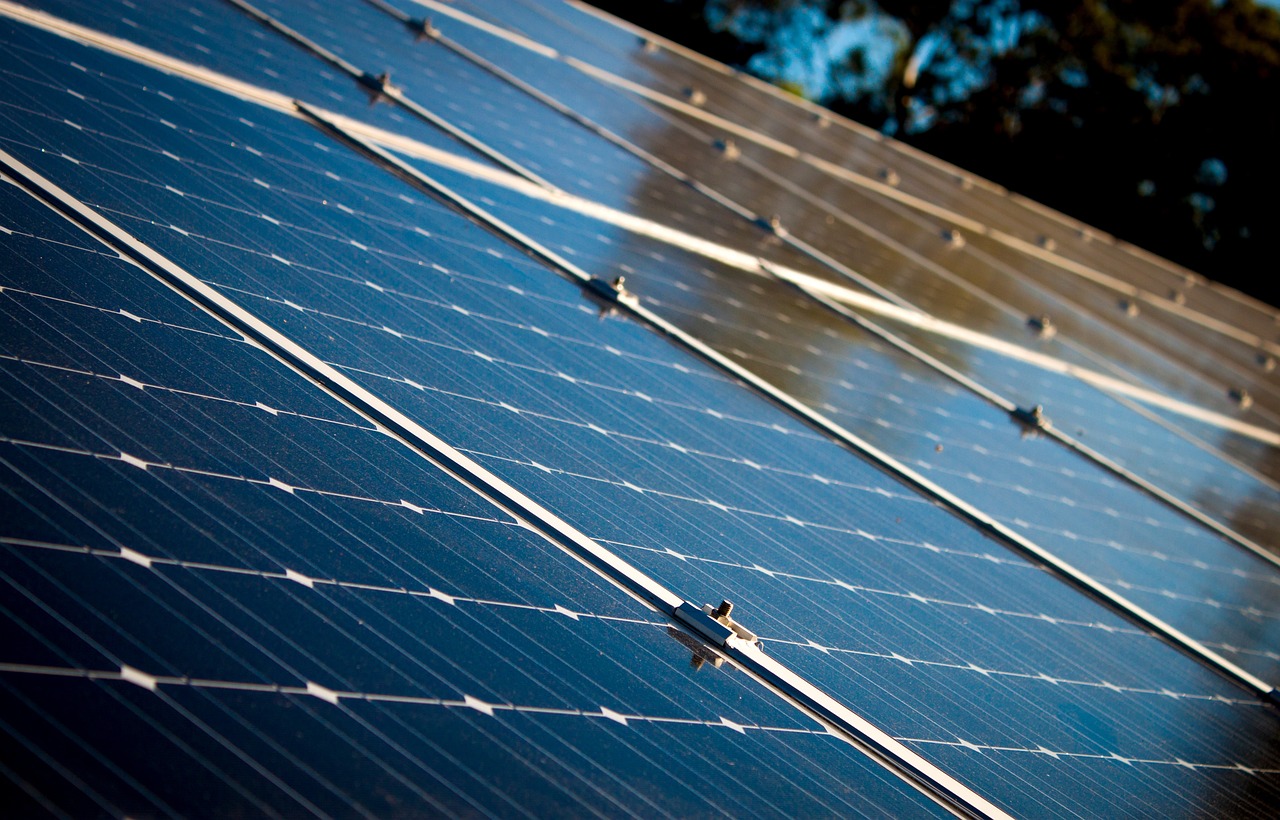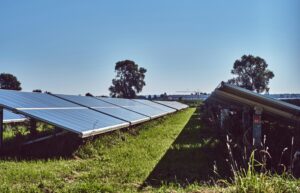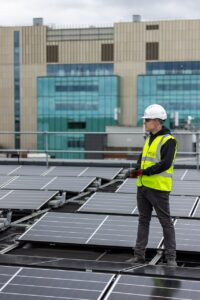Curious homeowners are increasingly asking themselves, “Can solar panels increase the value of my home?” This burning question stems from the growing popularity of solar energy, as more and more individuals are considering investing in renewable resources. In this article, we will explore the potential benefits of installing solar panels on residential properties and shed light on whether this eco-friendly technology truly has the power to boost the value of your beloved home. So, sit back, relax, and let’s delve into the world of solar panels and their impact on property values.
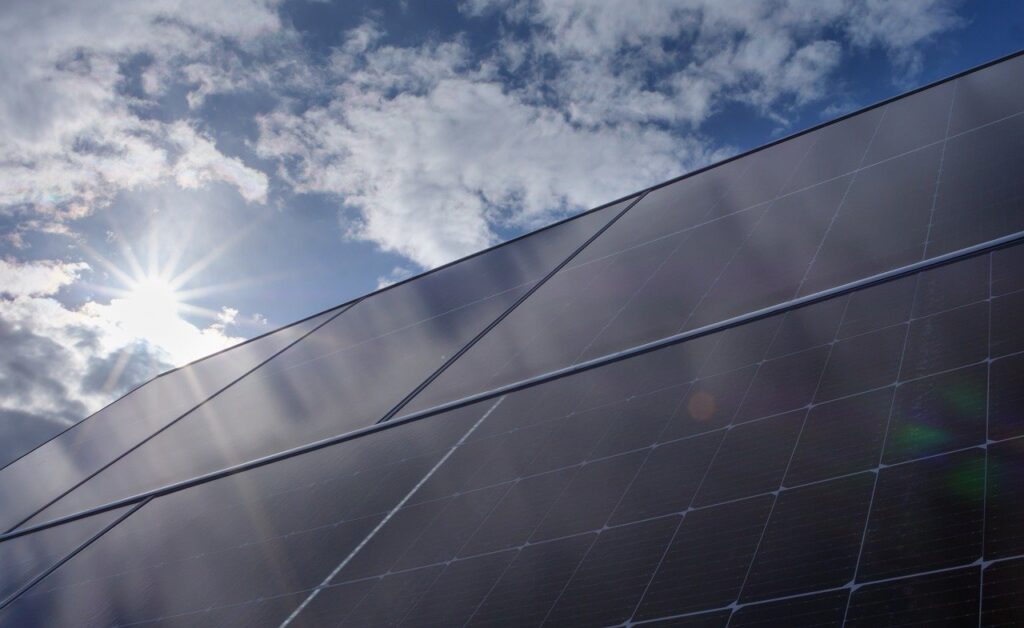
Benefits of solar panels
Reduced energy costs
Installing solar panels on your home can significantly reduce your energy costs. By harnessing the power of the sun, you can generate your own clean and renewable energy, which means you rely less on traditional utility companies. This translates to lower monthly electricity bills and long-term savings. Not only will you be able to offset a portion, if not all, of your energy consumption, but you may also have the opportunity to sell excess energy back to the grid, further reducing your costs.
Environmentally friendly
One of the most appealing aspects of solar panels is their positive impact on the environment. Solar energy is a clean and renewable energy source, meaning it does not produce harmful greenhouse gas emissions or contribute to air pollution. By installing solar panels on your home, you are taking a proactive step towards reducing your carbon footprint and combating climate change. The use of solar energy helps to preserve natural resources and contributes to a healthier and more sustainable future for our planet.
Energy independence
Another benefit of solar panels is the potential for energy independence. By generating your own electricity from sunlight, you are no longer solely reliant on utility companies for your power needs. This can be particularly advantageous during power outages or in remote areas where accessing the traditional electrical grid may be difficult or costly. With solar panels, you have the ability to maintain a consistent power supply, providing peace of mind and ensuring that your home remains functional and comfortable even in challenging circumstances.
Factors that affect home value
Location
Location plays a crucial role in determining the value of a property. Factors such as proximity to amenities, schools, transportation, and desirable neighborhoods can all impact the value of a home. However, when it comes to solar panels, location can also influence the perceived value and attractiveness to potential buyers. In areas with abundant sunshine and a high demand for renewable energy, homes with solar panels are often viewed as more desirable and may command a higher price.
Condition of the property
The condition of your home also affects its value. Well-maintained properties with up-to-date features and systems are generally more valuable than those in need of repairs or upgrades. Solar panels, when properly installed and maintained, can contribute to the overall condition and appeal of your home. The presence of solar panels indicates that the property has been invested in and highlights a commitment to energy efficiency and sustainability, which can be attractive to potential buyers.
Energy efficiency upgrades
Energy efficiency is an increasingly important factor for homeowners and potential buyers. Energy-efficient upgrades, such as insulation, energy-efficient appliances, and, of course, solar panels, can significantly improve a home’s value. Buyers are often willing to pay more for homes that offer long-term energy savings and reduced utility costs. By investing in solar panels, you are not only reaping the immediate benefits of lower energy bills but also increasing the market value of your home.
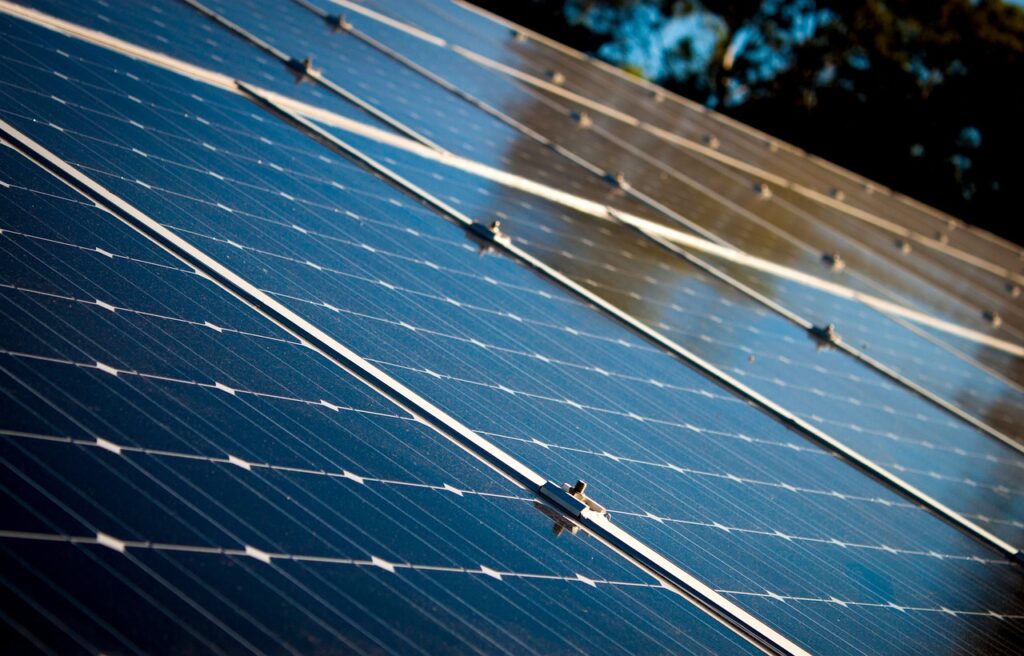
Solar panels and home value
Studies on solar panels and home value
Numerous studies have been conducted to assess the impact of solar panels on home values. The overwhelming consensus is that solar panels can indeed increase the value of a home. For example, a study by the U.S. Department of Energy’s Lawrence Berkeley National Laboratory found that homes with solar panels sold for an average of 4% more than similar homes without solar panels. This suggests that potential buyers recognize the value and benefits of solar energy and are willing to pay a premium for homes that have already made the investment.
Increase in home resale value
The presence of solar panels not only increases the attractiveness of a property but can also lead to a higher resale value. Studies have shown that homes with solar panels tend to sell faster and at a higher price compared to homes without solar panels. Buyers are increasingly interested in energy-efficient homes, and solar panels are often seen as a desirable feature that sets a property apart from others on the market. By installing solar panels, you are not only investing in your home but also positioning yourself for potential financial gains in the future.
Perceived value of solar panels
Beyond the actual financial benefits, solar panels also have a perceived value that extends to potential buyers. Solar panels are seen as a symbol of sustainability and environmental stewardship, which resonates with an increasing number of homebuyers. By choosing to go solar, you are demonstrating your commitment to energy efficiency and making a positive impact on the environment. This commitment can influence potential buyers’ perception of your home’s value and set it apart from competing properties in the market.
ROI of solar panels
Return on investment
Installing solar panels is an investment that can yield substantial returns over time. The return on investment (ROI) of solar panels is typically calculated by considering the initial cost of installation and the long-term savings in energy costs. While the upfront cost of solar panel installation can be significant, the savings on your monthly electricity bills can help recoup this investment over time. Many homeowners find that their solar panels pay for themselves within a few years, after which they continue to enjoy long-term savings and financial benefits.
Long-term savings
One of the most significant benefits of solar panels is the long-term savings they provide. By generating your own electricity and reducing your reliance on traditional utility companies, you can significantly lower your monthly energy bills. Over the lifespan of solar panels, which can range from 25 to 30 years, these savings can amount to tens of thousands of dollars. By investing in solar panels now, you are effectively locking in your energy costs and protecting yourself from rising utility rates in the future.
Federal and state incentives
In addition to the long-term savings, there are often various financial incentives available to homeowners who install solar panels. These incentives can further enhance the ROI of solar panels and make the initial cost of installation more affordable. The federal government offers a federal solar investment tax credit, which allows homeowners to claim a percentage of the cost of solar panels as a tax credit. Additionally, many states and local governments offer their own incentives, such as grants, rebates, or property tax exemptions, to encourage the adoption of solar energy.
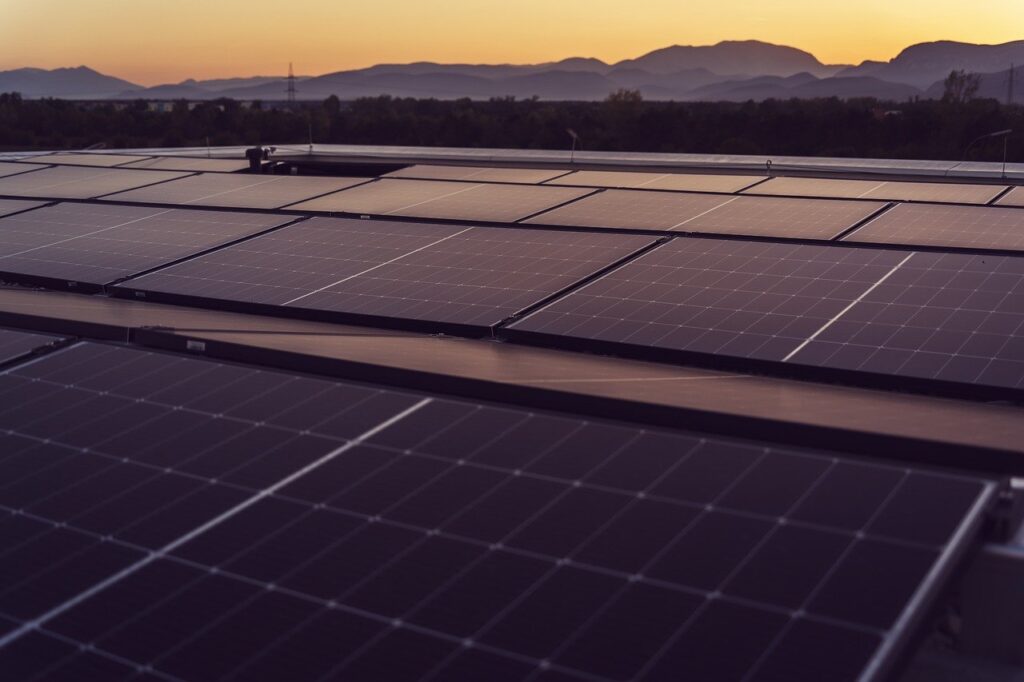
Improving home aesthetics
Sleek and modern appearance
Solar panels have come a long way in terms of design and aesthetics. Modern solar panels are sleek, low-profile, and blend seamlessly with the roofline of a home. This means that installing solar panels can actually enhance the overall appearance of your home. Rather than being an eyesore, solar panels can add a touch of modernity and sophistication to your property, giving it a fresh and updated look.
Increased curb appeal
Curb appeal is an essential factor when it comes to selling a home. The exterior appearance of a property can greatly influence a buyer’s first impression and interest in the home. With their sleek and modern look, solar panels can significantly enhance the curb appeal of your home. Whether potential buyers are consciously looking for energy-efficient features or not, the presence of solar panels can instantly catch their eye and create a lasting positive impression.
Enhanced marketability
Homes with solar panels often have a unique selling proposition that sets them apart in the market. As the demand for energy-efficient properties continues to rise, solar panels can give your home a competitive edge. Potential buyers who prioritize sustainability and reduced energy costs are more likely to be drawn to homes with solar panels. By installing solar panels, you are not only improving the aesthetics of your home but also enhancing its marketability, which can lead to a faster and more successful sale.
Enhancing energy efficiency
Reduced energy consumption
Solar panels play a significant role in reducing a home’s energy consumption. By generating your own clean and renewable energy, you rely less on energy from traditional sources, such as fossil fuels. This means that your overall energy consumption decreases, leading to decreased environmental impact. By installing solar panels, you are actively contributing to a more sustainable future by reducing your carbon footprint.
Energy-efficient upgrades
In addition to the reduced energy consumption from solar panels, their installation often goes hand in hand with other energy-efficient upgrades. Homeowners who install solar panels often take the opportunity to make other energy-saving improvements, such as adding insulation, upgrading windows and doors, or installing energy-efficient appliances. These additional upgrades further enhance the energy efficiency of a home and can lead to even greater energy savings.
Positive impact on energy efficiency ratings
An important consideration for homeowners and potential buyers is energy efficiency ratings. These ratings indicate how efficiently a home uses energy and can have an impact on long-term energy costs. By installing solar panels and implementing other energy-efficient upgrades, your home’s energy efficiency rating can be significantly improved. A higher energy efficiency rating not only benefits you in terms of reduced energy costs but also contributes to the overall value and desirability of your home.
Potential challenges
Upfront cost of installation
While solar panels offer numerous benefits, it is important to consider the potential challenges as well. One of the main challenges is the upfront cost of installation. Solar panels can require a significant investment, depending on the size of the system and the complexity of the installation. However, it is crucial to look at this cost in the context of long-term savings and financial benefits. In many cases, the return on investment of solar panels outweighs the initial cost over time.
Compatibility with roof type
Another challenge to consider is the compatibility of your roof with solar panels. Not all roofs are suitable for solar panel installation, as factors such as shading, orientation, and structural integrity can impact the efficiency and effectiveness of the panels. It is essential to consult with a professional installer to assess the compatibility of your roof and determine the best approach for installation. While this may require additional planning and considerations, the benefits of solar panels can outweigh the challenges.
Maintenance and repair requirements
Like any other technology, solar panels may require occasional maintenance and repairs over their lifespan. While solar panels are generally low-maintenance, factors such as extreme weather conditions or damage from external factors may necessitate repairs. It is important to factor in the potential maintenance and repair costs when evaluating the overall cost-effectiveness of solar panels. However, with proper installation and regular inspections, the need for significant repairs is generally minimal, and most maintenance can be carried out easily.
Factors to consider
Local solar incentives
When considering installing solar panels, it is important to research and take advantage of any local solar incentives that may be available. Many states and local governments offer financial incentives, such as tax credits, grants, or rebates, to encourage the adoption of solar energy. These incentives can help offset the initial cost of installation and improve the overall affordability of solar panels. By taking advantage of these local incentives, you can maximize the financial benefits of solar panel installation.
Property value trends
It is also crucial to consider the property value trends in your area when evaluating the potential impact of solar panels on your home’s value. Property values are influenced by various factors, such as market demand, economic conditions, and neighborhood trends. Researching property value trends can give you a better understanding of how solar panels may affect the value of your home in your specific location. This information can help you make an informed decision and determine if installing solar panels aligns with your long-term financial goals.
Duration of homeownership
The duration of homeownership is another important factor to consider when evaluating the feasibility of solar panel installation. While solar panels offer long-term savings and financial benefits, it is essential to assess how long you plan to live in your current home. The return on investment of solar panels is typically realized over several years, so if you plan to move in the near future, the financial benefits may not outweigh the upfront cost of installation. However, if you plan to stay in your home for an extended period, solar panel installation can be a worthwhile investment.
Assessing solar panel installation
Professional assessment
Before making any decisions regarding solar panel installation, it is highly recommended to seek a professional assessment. A professional installer can evaluate your property and provide recommendations based on factors such as roof orientation, shading, structural integrity, and local regulations. They can determine the optimal size and placement of solar panels, taking into account your energy needs and goals. A professional assessment ensures that the solar panel system is tailored to your specific property and maximizes its efficiency and effectiveness.
Evaluation of property characteristics
In addition to a professional assessment, it is important to evaluate the characteristics of your property that may impact the installation and performance of solar panels. Factors such as roof age and condition, sun exposure, availability of space for panel placement, and overall energy needs should be considered. By thoroughly evaluating these characteristics and considering any potential challenges, you can make an informed decision and ensure that solar panel installation is a viable option for your property.
Financial feasibility analysis
Finally, conducting a financial feasibility analysis is crucial when assessing the installation of solar panels. This analysis considers factors such as the upfront cost of installation, potential long-term savings, available incentives, and the estimated return on investment. By examining these financial aspects, you can determine whether solar panel installation aligns with your budget and financial goals. It is advisable to consult with financial experts or solar energy professionals to conduct a comprehensive analysis and ensure that you are making an informed decision based on your financial situation.
Conclusion
Solar panels offer a wide range of benefits for homeowners. Not only do they reduce energy costs and provide long-term savings, but they also have a positive impact on the environment. Solar panels can increase the value of your home by making it more attractive to potential buyers and demonstrating a commitment to sustainability. Additionally, solar panels can enhance the aesthetics of your home, improve energy efficiency, and offer various financial incentives. While there may be upfront costs, challenges, and factors to consider, the overall benefits of solar panel installation make it a worthwhile investment. By taking into account local incentives, property value trends, and the duration of homeownership, you can assess the feasibility of solar panels and make an informed decision that aligns with your financial goals and environmental values. In conclusion, solar panels not only provide a positive impact on home value and long-term financial benefits but also contribute to a greener and more sustainable future.

